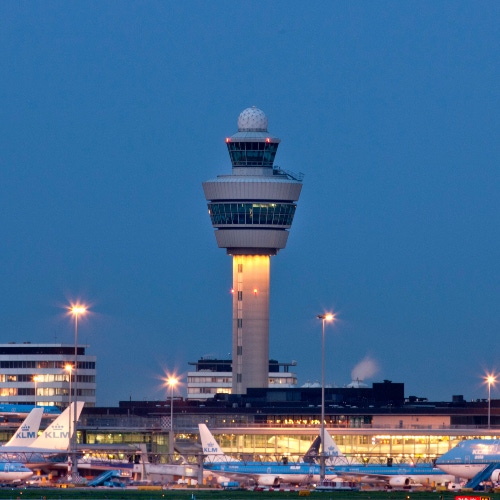
AT&T and Verizon have agreed to curtail their 5G networks around select airports for another year, until July 2023, under a new agreement with the Federal Aviation Administration (FAA).
"The wireless companies offered Friday to continue with some level of voluntary mitigations for another year," the FAA wrote in a release. The agency did not provide details on the specific mitigations, but suggested the operators would be able to resume operations after July 2023 "with minimal restrictions."
In a statement distributed to the media, AT&T said it's working to carefully increase its 5G power levels around airports in cooperation with the airline industry. "We have developed a more tailored approach to controlling signal strength around runways that allows us to activate more towers and increase signal strength," the operator wrote. "Though our FCC licenses allow us to fully deploy much-needed C-band spectrum right now, we have chosen in good faith to implement these more tailored precautionary measures so that airlines have additional time to retrofit equipment."
Added AT&T: "We will continue to work with the aviation community as we move toward the expiration of all such voluntary measures by next summer."
Figure 1:  Amsterdam's Schiphol Airport at dawn. It's not particularly relevant to this story, but it sure is pretty.
Amsterdam's Schiphol Airport at dawn. It's not particularly relevant to this story, but it sure is pretty.
(Source: frans lemmens/Alamy Stock Photo)
Verizon issued a similar statement: "We will lift the voluntary limitations on our 5G network deployment around airports in a staged approach over the coming months meaning even more consumers and businesses will benefit from the tremendous capabilities of 5G technology," Verizon's Craig Silliman said in a release. "This progress is the result of months of close collaboration with the FAA, FCC and aviation industry, and sets the stage for continued, robust 5G deployment."
At issue are concerns over 5G operations in midband C-band spectrum, and whether those operations might affect some aircraft altimeters operating at select airports around the country. The topic created a public relations debacle earlier this year, and AT&T and Verizon agreed to curtail their C-band operations around airports until July 2022 in order to discuss ways to address the situation.
The FAA said altimeter manufacturers have designed upgrades that prevent interference with 5G operations in C-band spectrum.
"The radio-altimeter manufacturers have worked at an unprecedented pace with Embraer, Boeing, Airbus and Mitsubishi Heavy Industries to develop and test filters and installation kits for these aircraft. Customers are receiving the first kits now. In most cases, the kits can be installed in a few hours at airline maintenance facilities," according to the FAA. "Throughout this process, the FAA will work with both industries to track the pace of the radio altimeter retrofits while also working with the wireless companies to relax mitigations around key airports in carefully considered phases."
The FAA did not discuss who might pay for those new retrofits.
However, representatives from the airline industry warned that the issue might stretch beyond July 2023. According to a letter from the Airlines for America trade group that was tweeted by Reuters reporter David Shepardson, the airline industry learned just this week that 4,800 aircraft will need to be retrofitted. "Given that the FAA has not even approved solutions nor have manufacturers manufactured these products for most of the fleet, it is not at all clear that [airline] carriers can meet what appears to be an arbitrary deadline."
In response, the FAA said its timeline "accurately reflects the realities of the marketplace," according to Shepardson.
Verizon is roughly a year into its massive deployment of 5G in its C-band spectrum holdings, having already deployed the technology in some of its other spectrum bands. AT&T, meantime, has promised a major deployment of 5G in both its C-band and 3.45GHz holdings starting later this year. T-Mobile also owns C-band spectrum, but its spectrum licenses prevent it from using that spectrum until 2023. T-Mobile's existing 5G network primarily uses its 600MHz and 2.5GHz holdings.
Related posts:
— Mike Dano, Editorial Director, 5G & Mobile Strategies, Light Reading | @mikeddano
About the Author(s)
You May Also Like











